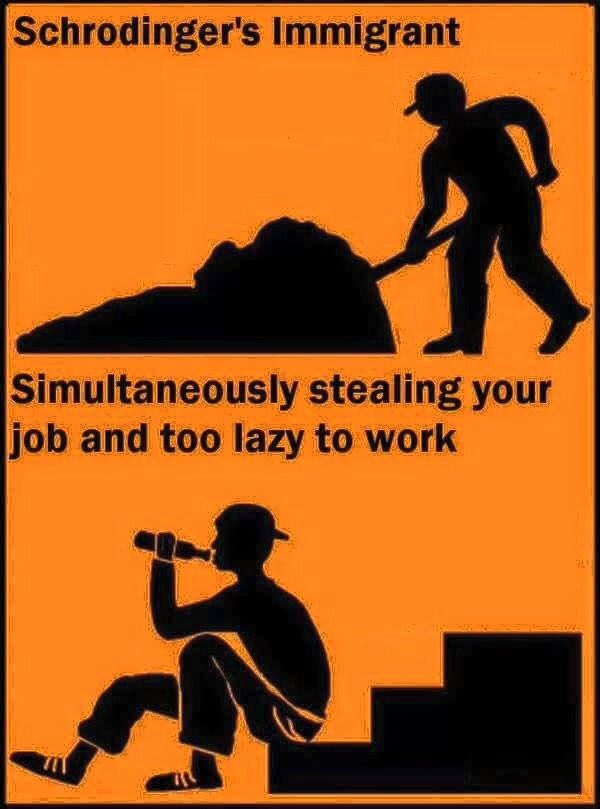Happy Open Borders Day! The world remains light-years from free migration, but the intellectual case and elite support for open borders continue to build. In honor of the day, let’s explore a little topic I call… “the other cause of immigrant idleness.”
The global poor migrate to the First World, kiss the soil, then permanently go on welfare. Idle immigrants: Nothing short of outright criminality does more to tarnish the image of immigration. It smacks of ingratitude and parasitism. And while the prevalence of immigrant idleness is overstated, it is a very real problem, especially in Europe.
As a cosmopolitan libertarian, my first reaction is point fingers at the welfare state. If the problem is government subsidies for indefinite idleness, the solution is to curtail not immigration, but redistribution. When the law allows it, plenty of natives permanently go on welfare, too. Rhetorically sliding from the generic evils of the welfare state to the selective evils of immigrants is effective demagoguery, but fuzzy logic.
Yet on reflection, my first reaction misses a major part of the story. Countries with ample redistribution also tend to have strict labor market regulations. Despite their feel-good popularity, labor market regulations have a big negative side effect: unemployment.
This collateral damage is clearest for regulations that explicitly push up wages: If the law requires a 10% raise, employers can reduce the damage to their bottom line by employing fewer workers. But unless wages are perfectly flexible, any “pro-worker” regulation risks this disemployment effect. If the law makes employers give workers free health insurance, and workers bitterly resent offsetting pay cuts, hiring fewer workers is employers’ best remaining defense.
The moral: When you see an idle immigrant, you shouldn’t jump to the conclusion that he’s a lazy parasite. There’s another possibility: Labor regulations have priced him out of a job. He’s on welfare not because he doesn’t want to work, but because he’d rather go on welfare than starve.
The same logic naturally holds for natives. But the concern is especially relevant for immigrants. The workers employers decide not to hire are not randomly selected. When there’s a surplus of labor, employers prefer workers who definitely won’t have linguistic or cultural issues. Workers who “need a chance to prove themselves” get hired last. Furthermore, when there’s a surplus of workers, the cost of outright bigotry sharply falls.* If native employers feel a hint of antipathy for foreigners, wage floors encourage employers to act on that antipathy.
All this leads to a disturbing epiphany: Labor market regulation isn’t just an alternative explanation for immigrant idleness. It is a compelling alternative explanation because immigrants bear the brunt of labor market regulation’s disemployment effect. And contrary to a few silly economists, involuntary unemployment is no vacation. It is a grave evil for jobless and society alike. In fact, unemployment is an even greater social evil than it seems, because it gives xenophobia a veneer of justification.
* Why not just have two-tier wages for natives versus foreigners? Discrimination laws aside, workers resent perceived horizontal inequities, leading to disruptive morale problems.
The post appeared first on Econlib.











Schrodinger's immigrant is absurd because there isn't only one of them, or only one type. It's not broken down by ethnicity or nationality, either. No, the hardworking immigrant (who either is working or genuinely would want to be working if possible) also comes with various unproductive family members. They're people, not economic units.
Does it matter that the USA is $35 trillion dollars in debt? Should this effect the ability of the country to let in as many immigrants as they can and give them full medical and benefits. At a time when they struggle to give the same to their own people. Why is this glossed over?